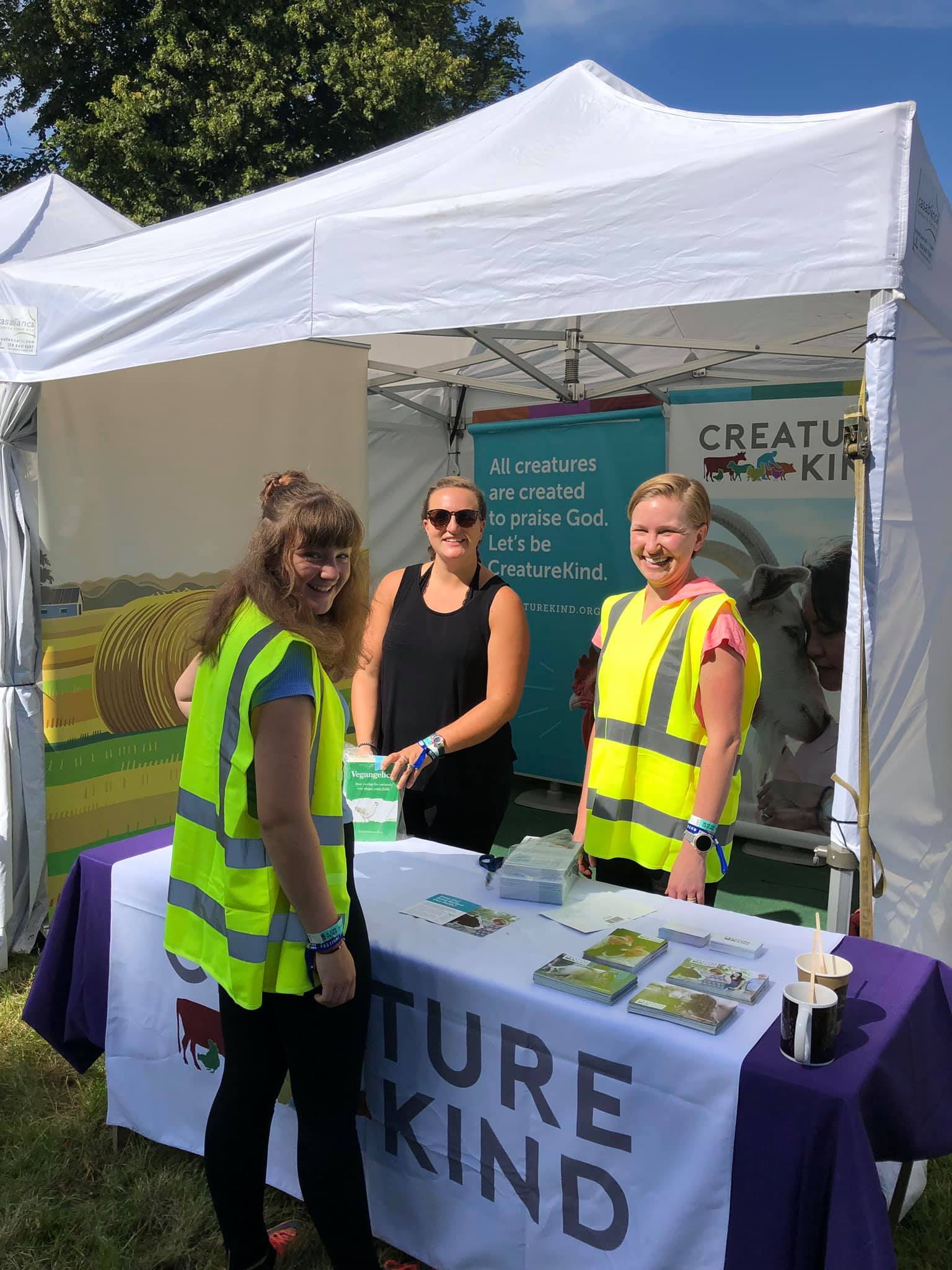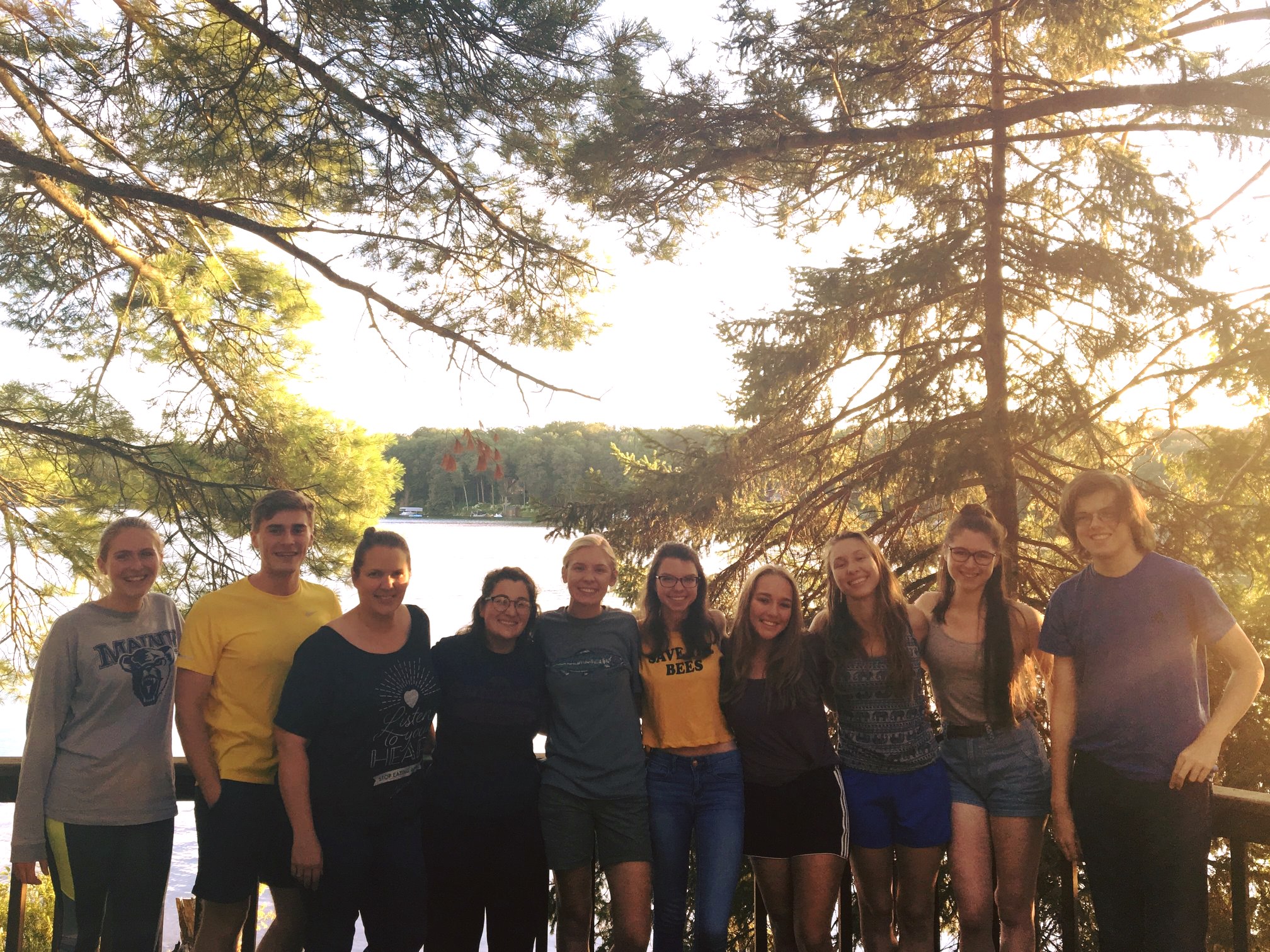From Genesis to Revelation, and from the early church to the present day, there are vivid examples of God's—and the church's—love of, care for, and delight in animal creatures.
By Sarah Withrow King
From Genesis to Revelation, and from the early church to the present day, there are vivid examples of God's—and the church's—love of, care for, and delight in animal creatures. William Wilberforce and other leaders of the British antislavery and anti–child labor movements were also early founders of the Royal Society for the Prevention of Cruelty to Animals, and worked to pass legislation protecting animals from various forms of cruelty.
Many accounts from the lives of saints include moving tales of meaningful friendships between saints and animals, such as the story of St. Macarius, who healed a blind hyena pup: the pup's mother tried to repay Macarius's kindness by bringing him a sheep's skin. As the story goes, Macarius took the skin, but only after insisting that if the hyena was hungry, she was not to kill another creature, but should come to him for food, which she did.
Today, many churches include food for companion animals in their food pantry programs. Others take special care to protect and provide for wildlife who wish to make a home on church grounds. Christian college students take internships at animal welfare organizations and ask their campus dining halls to provide vegan and vegetarian food options. Some pastors publicly support legislation that promotes better animal welfare, preside over pet funerals, or preach on topics that include concern for animals. Church animal welfare groups hold film screenings, book discussions, and small group studies to promote dialogue about Christianity and animal welfare in their congregations. There are many ways to care for animals, and Jesus followers are often moved to do so not in spite of their faith, but because of it. Of course, human beings are a kind of animal creature, different from sibling species by a matter of physiological and genetic degrees. But for our purposes, I refer to human beings as "humans" and nonhuman beings as "animals."
There are many ways to care for animals, and Jesus followers are often moved to do so not in spite of their faith, but because of it.
A reading of the Scripture that is attentive to animals shows that humans and animals are both created by God, worship God, and are provided for by God; humans are made in the image of God and given a particular role in that image; the whole (broken) world is in the process of being reconciled to God through Jesus Christ; and the vision of the promised kingdom is marked by peace between and flourishing of all species.
Humans are made in the image of God.
While the creation narrative in Genesis 2 portrays animals as potential partners to humans, in Genesis 1, God says, "Let us make mankind in our image, in likeness" (Gen 1:26). In English translations, Christ is also referred to as the image of God: "The Son is the image of the invisible God, the firstborn over all creation. For in him all things were created: things in heaven and on earth" (Col 1:15‑16). Humans have not always lived up to the image endowed by the Creator in us. Eleazar S. Fernandez posits one possible source of this failure:
We have learned to develop our identities as human beings through disconnection, rather than through connectedness and interdependence. Our way of relating to fellow human beings parallels our way of relating to other beings in the cosmos. We seek to disconnect ourselves because we want to establish our difference from other forms of life. But the difference that we seek through our acts of disconnection is an adjunct to claim our superiority. We establish our difference through disconnection because we believe deep in our hearts that it is only in disconnecting ourselves that we can claim superiority. Rather than seeing our difference and uniqueness as a reminder of our interdependence, we confuse our difference and uniqueness with superiority.
When we downplay the kinship between animals and humans portrayed in Genesis 2 and center ourselves in the story of the creation and redemption of the world (anthropocentrism), there are far-reaching consequences not only for our relationship with animals and the environment, but for our relationships with other humans as well.
When we downplay the kinship between animals and humans portrayed in Genesis 2 and center ourselves in the story of the creation and redemption of the world (anthropocentrism), there are far-reaching consequences not only for our relationship with animals and the environment, but for our relationships with other humans as well. Liberation ethicist and pastor Christopher Carter asks us to consider whether humans are "living up to their potential as beings created in the image of God? Are they capable of re-imagining their divinely appointed role in Creation to care for nonhuman animals in a way that conforms to this image?"
Humans are given a particular role in that image.
Immediately after creating and blessing humans, God tells these beings made in the image of their Creator that they are to "rule over the fish in the sea and the birds in the sky and over every living creature that moves on the earth" (Gen 1:28). And right away, God points to the lush landscape and says, "I give you every seed-bearing plant on the face of the whole earth and every tree that has fruit with seed in it. They will be yours for food" (Gen 1:29). Our first responsibility was to cultivate the plants of the land so that all God's creatures could eat. Even as the Scriptures describe sin and its consequences, including the reality of food from animal and human death, God placed limits on human use and consumption of animals, outlined in the Law. Working animals were to be given weekly rest (Ex 23:12); fields were to lie fallow, in part to allow wild animals the opportunity to eat (Ex 23:10); and it was a sin to kill an animal without giving appropriate thanks to God (Lev 17:3‑7).
When humans fail to obey God, the whole world suffers (Gen 7–8); when humans fail to keep God at the center of their lives, the whole world suffers (Jer 7:16‑20; 12:4).
This piece appears in Evangelical Theologies of Liberation and Justice, edited by Mae Elise Cannon and Andrea Smith and appears here with permission. Copyright (c) 2019 by Mae Elise Cannon and Andrea Smith. Published by InterVarsity Press, Downers Grove, IL.





